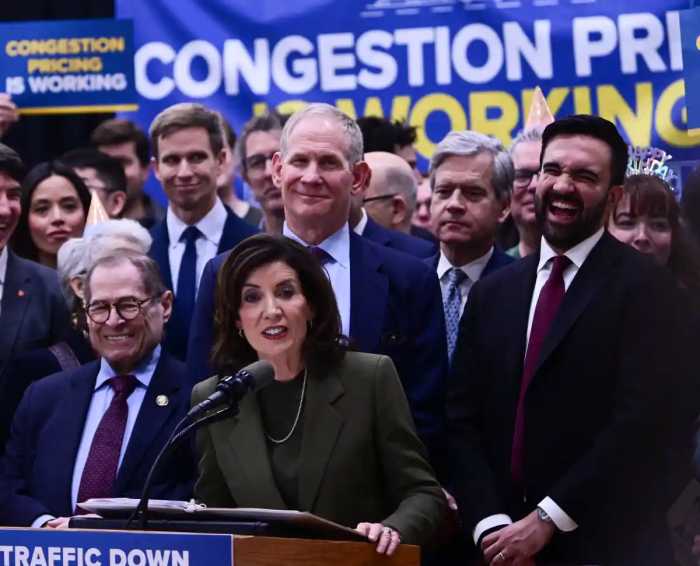
By Sergio Perez-Gruszkiewicz
I recently wrote an article about climate change with a student at the U.S. Merchant Marine Academy (USMMA). The article, published in the Transnav Journal, showed how climate change would result in reduced iceberg numbers in the NW Atlantic shipping lanes off Newfoundland, Canada. You may remember this is where Leonardo DiCaprio met his movie fate on board an ill-fated passenger vessel in 1912.
Reduced iceberg numbers may sound like a good thing and, in fact, climate change may have some effects that can be considered beneficial. However, the balance tilts toward the negative. Winters on Long Island will grow gradually milder, but the summers more difficult to tolerate. The temperatures now encountered only in summer heat waves will become average summer temperatures. By 2050, yearly average temperatures in New York State will increase by about 6 degrees F. Those living in areas near the shore, like some of our neighbors in Kings Point, may find that the increased severity of storms associated with climate change, combined with increasing sea levels, will make living close to the water a challenging undertaking.
Will we survive climate change? Probably. Gradually, the U.S. may have to change the variety and distribution of crops grown. We may need to use and develop new insecticides against different breeds of insects. More locally, New York summer athletic events may be held only at night or indoors to prevent the occurrence of heat stroke.
It may be too uncomfortable, even at night, for the summer concert series in Steppingstone Park. The water levels in that same park will surpass the concrete barriers during storms, eventually claiming some of the park’s square footage.
We can buy more potent air conditioners. The USMMA can abandon parts of the CAORF building, which is already flooding during storms with increased frequency. We can probably survive.
Some areas of the world will become uninhabitable as the result of excessive heat or flooding due to sea-level rise. This will result in mass migration and more refugees. Probably, we will survive.
The “probably” is used for a reason: While there is no doubt that climate change is happening, we cannot possible foresee all the consequences of turning the climate upside down at such a rapid rate. Can we be 100 percent sure that we won’t cause some unimagined calamity?
In the past 400,000 years at least, Earth has never seen such high CO2 levels—current CO2 levels decimate the previous maximum readings. And, these levels have not gotten there gradually—they have spiked suddenly, almost explosively. Clearly, it is prudent and wise to control this problem.
There are solutions, and everyone has heard them by now: solar, wind, tides, geothermal and maybe even nuclear energy. But government must be the driving force since the required changes are so difficult, requiring a drastic cut in fossil fuel use.
The only meaningful course of action people can take is to vote for politicians who embrace this issue; hopefully, climate change will be part of the platform of all political parties. Will this happen?
Probably not.
Dr. Sergio Perez is a professor of engineering at the USMMA. His views are not necessarily those of the USMMA or the U.S. government.

































